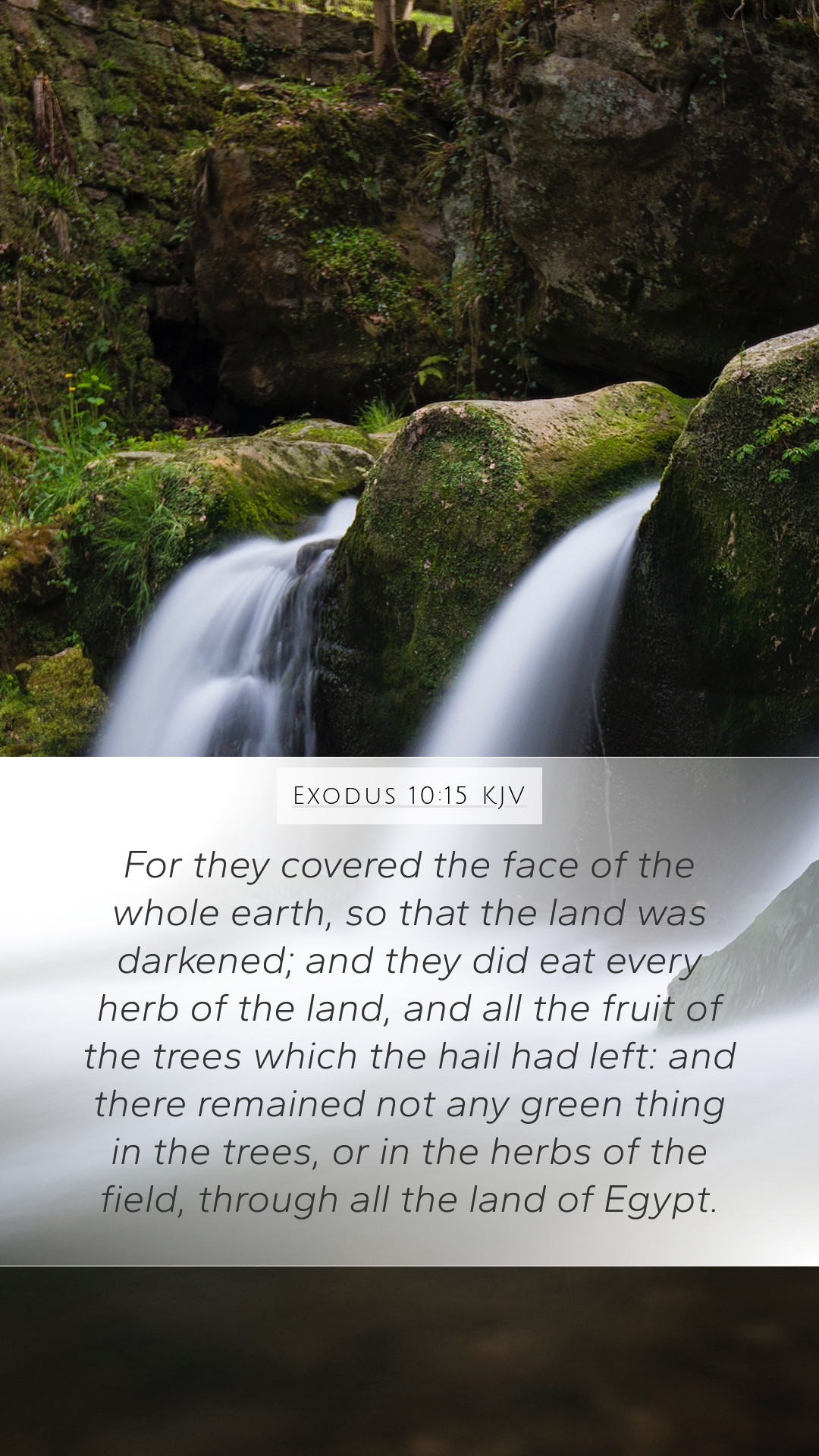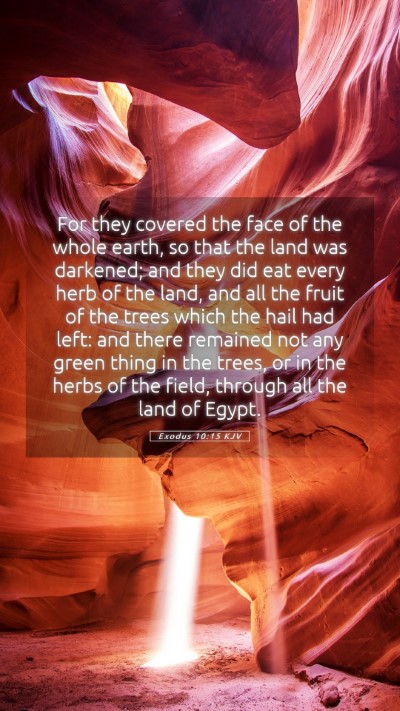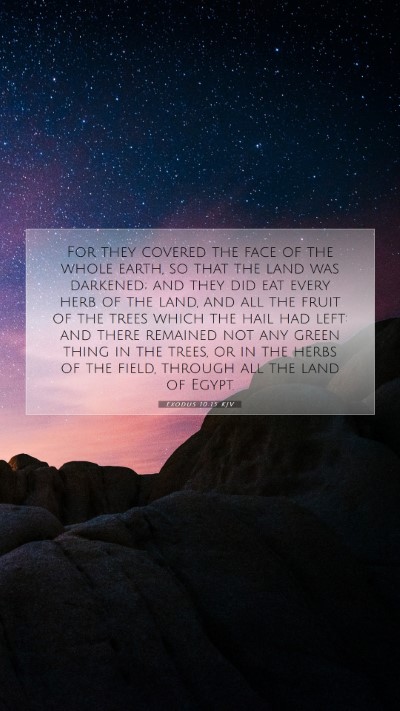Understanding Exodus 10:15
Exodus 10:15: "For they covered the face of the whole earth, so that the land was darkened; and they did eat every herb of the land, and all the fruit of the trees which the hail had left: and there remained not any green thing in the trees, or in the herbs of the field, through all the land of Egypt."
Bible Verse Meanings
This verse describes one of the plagues that God inflicted upon Egypt as a judgment against Pharaoh for his refusal to let the Israelites go. The plague of locusts is significant as it symbolizes the extent of God's power and the consequences of disobedience.
Bible Verse Interpretations
In this passage, the imagery of darkness from countless locusts illustrates the overwhelming nature of God's judgment. The locusts consumed every green thing left after the previous plague, emphasizing the total devastation wrought upon Egypt.
Bible Verse Explanation
Biblical scholars note that the locust plague serves as a reminder of God's sovereignty over creation and His willingness to use natural phenomena for divine purposes. The destruction highlights the futility of opposing the will of God.
Scripture Analysis
Analyzing the context of Exodus 10:15 requires understanding the backdrop of Egypt's ancient agriculture and economy, which relied heavily on the fertility of the land. The loss of crops due to the locusts not only symbolized physical devastation but also economic despair.
Bible Study Insights
- Symbolism of Locusts: Locusts in Scripture often signify judgment and destruction.
- Divine Judgment: The fulfillment of God's promises of retribution against those who oppress His people.
- Pharaoh's Hardened Heart: A focus on how repeated signs from God did not lead to repentance on Pharaoh’s part.
- Restoration Themes: This passage eventually leads to themes of restoration when the Israelites leave Egypt and enter the Promised Land.
Historical Context of Bible Verses
The plagues of Egypt form a crucial narrative in the story of the Exodus. Historically, they represent God's deliverance of His people and the end of oppression, which is significant for both Hebrew and Christian theology.
Cross References
- Exodus 7:12: The first plague of the serpent and the magicians’ replication.
- Exodus 10:4-6: The initial warning and description of the locust plague.
- Joel 1:4: The prophecy of locusts as a metaphor for future judgment.
Application of Bible Verse
Exodus 10:15 teaches us about the consequences of sin and the importance of obedience to God. It encourages believers to reflect on areas in life where they may resist God's will and the potential repercussions that may follow.
Conclusion
Understanding Scripture, specifically Exodus 10:15, requires insight into Biblical exegesis and a grasp of the overall narrative in which it is embedded. This verse is not just a historical account but a continual reminder of God's authority and the seriousness of defying His purpose.


